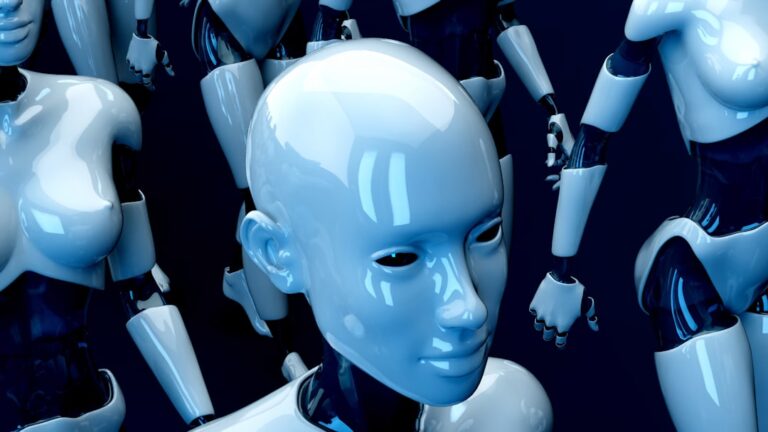The Rise of the Agentic Web: Satya Nadella’s Vision for AI, Self-Generating Platforms, and the Future of Work
Introduction: Imagining a Self-Generating Web
Imagine a web that generates itself—where AI agents autonomously build, optimize, and manage digital experiences, blurring the line between creator and user. In a recent interview at Microsoft Build 2025, Satya Nadella, Microsoft’s CEO, outlined his vision for an "agentic web," where AI-driven orchestration transforms not just development, but the very nature of work, education, and productivity. This article explores Nadella’s insights, the evolution of AI agents, and what a self-generating web means for developers, businesses, and knowledge workers.
The Agentic Web: Redefining How the Internet Evolves
What is the Agentic Web?
The agentic web refers to a new paradigm where AI agents—autonomous digital entities—collaborate to perform complex tasks, manage workflows, and even evolve web platforms on the fly.
- AI agents can orchestrate data, content, and application logic across platforms.
- Self-generating web capabilities allow platforms to adapt and optimize themselves based on user needs and real-world data.
- Open standards and interoperable protocols make it possible for agents to work seamlessly across different domains.
“We are definitely trying to build a scaffolding for the AI age… where every layer is open. It composes. There are standards, there are protocols. And I feel like we are finally there.” — Satya Nadella
Key Innovations from Microsoft Build 2025 (0:00–5:00)
- Autonomous coding agents: AI tools that write, review, and optimize code automatically.
- Copilot Tuning: Letting enterprises fine-tune AI models on proprietary data for competitive advantage.
- Windows AI Foundry & NL Web: Foundations for building and scaling agentic systems.
The Future of Work: From Knowledge Worker to Agent Manager
How AI Agents Invert Traditional Workflows (5:00–11:00)
Nadella describes the rapid shift from manual, siloed workflows to AI-driven orchestration:
- Traditional workflow: Information gathered by teams, compiled into reports, and manually distributed.
- AI-empowered workflow: A single prompt retrieves information from multiple sources—email, CRM, documents, web—creating comprehensive, tailored reports in seconds.
Actionable Tip
- Embrace AI tools: Start using platforms like Microsoft 365 Copilot or GitHub Copilot to change your workflow and boost productivity.
Becoming an Agent Manager
In the agentic web, every knowledge worker can:
- Orchestrate fleets of AI agents to handle repetitive, data-heavy tasks.
- Focus on higher-level strategy, creativity, and collaboration.
- Continuously upskill to manage and guide AI-driven processes.
“I am more employable today. Because I feel more empowered. I feel that I can get to information faster, collaborate with my colleagues… The best thing that can happen is diffusion.” — Satya Nadella
Addressing Job Displacement
- Diffusion of tools: The best defense against automation is proactive upskilling.
- Personalized learning: AI education should be tailored to actual workflows—marketers, developers, and customer success teams all need unique approaches.
AI in Software Development: Towards 90%+ AI-Generated Code
The Coding Revolution (11:00–15:00)
Microsoft reports that 30% of new code is already generated by AI. Nadella predicts a future where 90–95% of code could be AI-created. Key implications:
- Tackling tech debt: AI agents can address the backlog of unfinished projects globally.
- Enhanced developer productivity: Tools that explain, visualize, and refactor code on demand.
- Human-in-the-loop: Despite high automation, human oversight ensures quality and context.
Example Workflow
- Developer highlights code in their IDE.
- AI agent explains logic, suggests improvements, and draws a flowchart.
- Agent executes multi-file edits, proposes repo-wide changes, and submits drafts for review.
Domain-Specific Agents & Competitive Edge
- Enterprises can tune AI agents with proprietary data, creating unique “code pods” that outperform generic copilots.
- Virtuous cycle: Model improvements feed back into the organization as real-world usage generates new learning data and feedback loops.
Business Transformation: Culture, Reinvention, and the AI Era
Adapting Organizations for AI-Orchestrated Work (15:00–18:00)
Nadella’s advice for organizations:
- Simultaneous reinvention: Rethink how you work, what you work on, and your go-to-market strategies.
- Culture is key: Foster an environment where experimentation and capability-building are encouraged.
- Don’t just study case studies—do it yourself!
Actionable Steps for Companies
- Deploy general-purpose AI tools across teams.
- Encourage bottom-up innovation—let employees automate their own workflows.
- Invest in continuous learning and personalized upskilling programs.
“You don’t get fit by watching others go to the gym. You have to go to the gym.” — Satya Nadella
Proactive Agents: The Next Leap in User Experience
From Reactive to Proactive AI (18:00–20:00)
The future is not just about responding to prompts—AI agents will:
- Anticipate user needs and take actions (e.g., summarize emails, automate scheduling) even offline.
- Operate transparently, with session logs to track actions for review and trust.
- Chain together as part of high-level user intent, not just isolated tasks.
Example: Copilot Plus PCs
- Local proactive agents can open Outlook and summarize emails without internet access, empowering users even in disconnected environments.
Real-World Impact: Beyond Hype to Measurable Outcomes
AI Agents in Healthcare and Education (20:00–21:51)
Satya Nadella emphasizes that the true value of AI is not in technical benchmarks, but in global economic growth and real-world outcomes.
- Healthcare: Multi-agent orchestrators are streamlining medical workflows, reducing costs, and improving care (evidenced by Stanford’s recent deployments).
- Education: AI interventions can make a “damn difference,” as seen in studies like the World Bank’s Nigeria pilot.
“We celebrate tech companies far too much versus the impact of technology… I want to get to a place where we’re talking about technology being used to do something magical for all of us.” — Satya Nadella
Conclusion: Creating a Self-Generating, Human-Centric Web
The agentic web is not science fiction—it’s fast becoming reality. By embracing AI agents, open standards, and a culture of continuous learning, organizations and individuals can:
- Unlock unprecedented productivity
- Transform workflows and business models
- Focus on impact, not just innovation for its own sake
Key Takeaways:
- The agentic web will automate and optimize itself, but human agency and oversight remain essential.
- Upskilling and diffusion of AI tools are the best ways to stay relevant.
- The true test of AI is not in technical milestones, but in its power to improve lives, businesses, and society.
Ready to future-proof your workflows? Start experimenting with AI agents today, and imagine a web that builds itself—with you in control.







